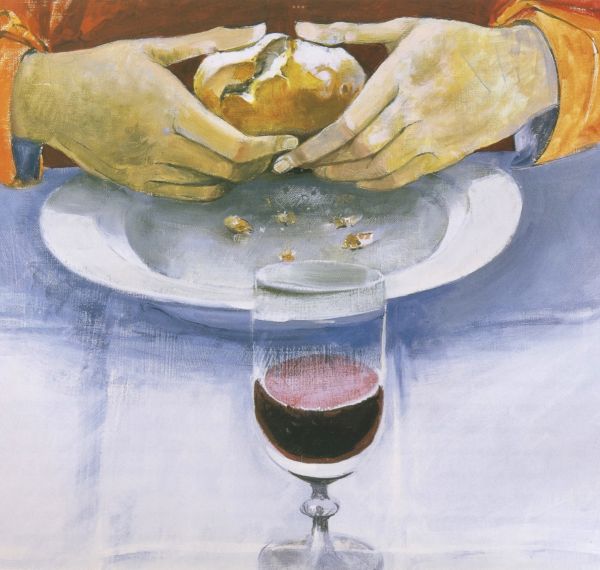The passage from John takes us back to Jesus' distribution of the loaves and fishes.
The Lord before the large crowd that follows him, puts his disciples to the test.
Turning to Philip, he asks where he could buy bread to feed so many people, even though he knew what he was about to accomplish: the 'multiplication' of five barley loaves and two fish, close to the Passover of the Jews.
We are reminded of the unimaginable abundance of the Eucharist, Bread of Life for all.
Francis, who described himself as 'simple and idiot', had a special heart that enabled him to perceive the depths of the Mystery of Christ's total self-giving.
Celano points out in Vita Prima:
"Friend of simplicity, with an incomparably sincere and noble heart. And how much this name of "Francis" suits him, to him who had a frank and noble heart more than any other" (FF 529).
His compassion for needy and poor people was visceral:
"He bent down, with wonderful tenderness and compassion, towards anyone afflicted by some physical suffering and when he noticed in someone indigence or need, in the sweet pity of his heart, he considered it as a suffering of Christ Himself" (FF 1142).
Indeed, before Jesus, Bread descended from Heaven, he expresses himself thus in his Admonitions:
"Behold, every day he humbles himself [...] every day he himself comes to us in humble appearance; every day he descends from the bosom of the Father onto the altar in the hands of the priest [...] and as to the holy apostles he showed himself in the true flesh [...] And as they with the eyes of the body saw only the flesh of him, but contemplating him with the eyes of the spirit, they believed that he was the same God, so we too, seeing bread and wine with the eyes of the body, must see and firmly believe that this is his most holy body and blood alive and true.
"And in this way the Lord is always with his faithful, as he himself says: 'Behold I am with you to the end of the world' " (FF 144-145).
And in his letters:
"O sublime humility! O humble sublimity [...] Behold, brothers, the humility of God, and open your hearts before him; humble yourselves also, that you may be exalted by him. NOTHING, THEREFORE, OF YOU HOLD BACK FOR YOURSELVES, THAT HE WHO OFFERS HIMSELF TOTALLY TO YOU MAY RECEIVE YOU TOTALLY' (FF 221).
But an example of 'Bread given' comes to us no less from Clare of Assisi:
"There was only one bread in the monastery, and already the hour of supper and hunger were pressing.
Calling the dispenser, the Saint commands her to divide the bread and send one part to the brothers, keeping the other inside for the sisters.
From this second half kept, he orders fifty slices to be cut, which was the number of the Women, and to present them to them on the table of poverty.
And to the devout daughter, who answered her: "It would take the ancient miracles of Christ, to be able to cut so little bread into fifty slices", the Mother replied, saying:
"Do safely what I tell you daughter!".
So the daughter hastened to carry out the Mother's command; and the Mother hastened to address more sighs to her Christ, for her daughters.
And by divine grace that scanty matter grows in the hands of the one who breaks it, so that an abundant portion results for each member of the community" (FF 3189).
«Then Jesus took the loaves and, having given thanks, gave them to those who were seated, and the same he did with the fish, as much as they wanted» (Jn 6:11)
Friday 2nd wk. in Easter (Jn 6:1-15)












